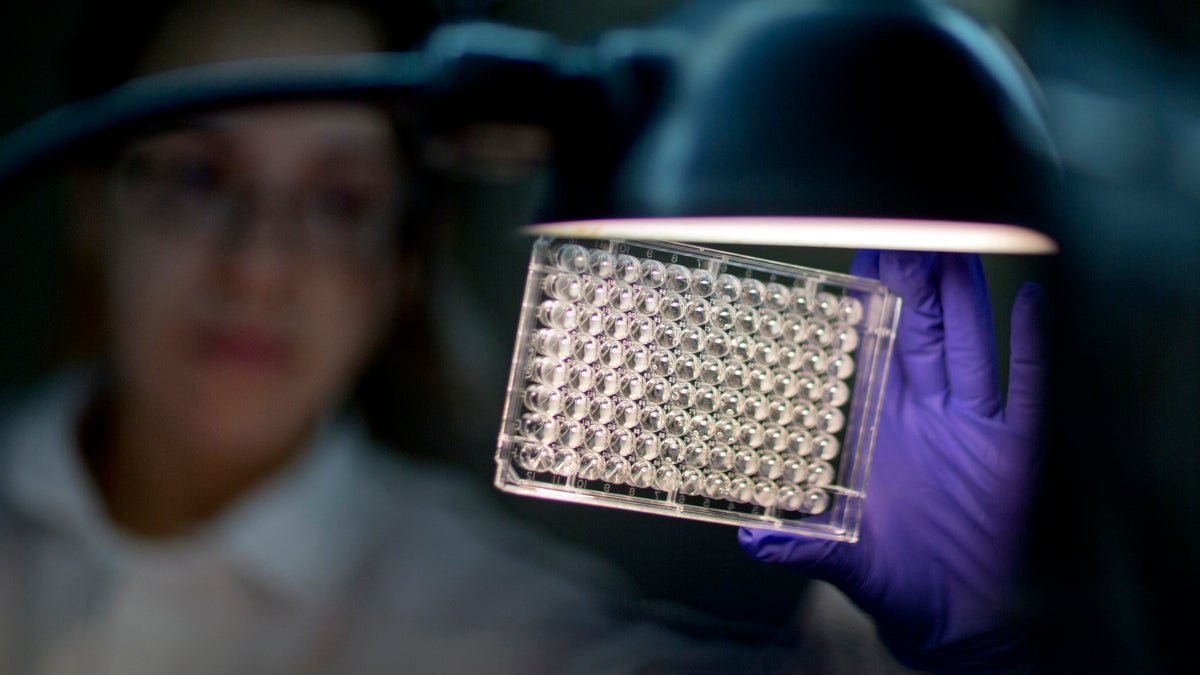First U.S. case of antibiotic-resistant bacteria found in Pa.

Microbiologist Tatiana Travis reads a panel to check on a bacterium's resistance to an antibiotic in an antimicrobial resistance and characterization lab within the Infectious Disease Laboratory at the federal Centers for Disease Control and Prevention. (David Goldman/AP Photo)
A 49-year-old Pennsylvania woman is the first in the nation found to have a rare strain of E. coli that is resistant to colistin. Colistin is considered the drug of last resort for bacteria that resist other antibiotics.
The superbug, being called a “nightmare bacteria” by some public health officials, has already been reported in more than a dozen other countries. The Pennsylvania case involves a woman who thought she had a urinary tract infection and sought treatment at an undisclosed facility. Lab tests performed at Walter Reed Military Medical Center, however, detected the mcr-1 genetic mutation.
The woman has recovered. But officials fear that if the resistance spreads to other bacteria, the country may soon see germs impervious to all antibiotics.
“We have learned about a human case of mcr-1 in a Pennsylvania resident, and my administration, through the Department of Health, immediately began working closely with the Centers for Disease Control and Prevention, as well as the United States Department of Defense, to coordinate an appropriate and collaborative response between federal, state, and local entities,” said Gov. Tom Wolf in a statement released Thursday. “We are taking the emergence of this resistance gene very seriously, and we will take necessary actions to prevent mcr-1 from becoming a widespread problem with potentially serious consequences. The safety of Pennsylvanians is our utmost priority.”
CDC officials fear that this may be the end of the road for the use of antibiotics to treat infections.
No other information about the Pennsylvania woman has been released.
WHYY is your source for fact-based, in-depth journalism and information. As a nonprofit organization, we rely on financial support from readers like you. Please give today.

